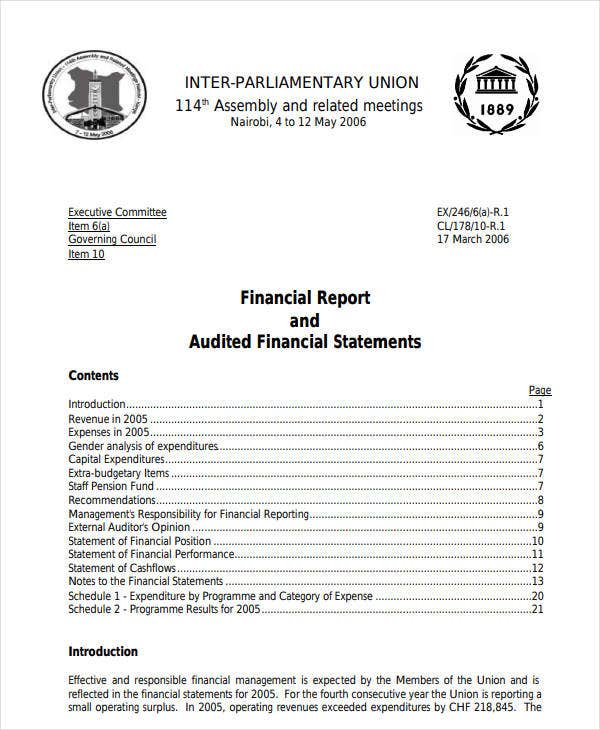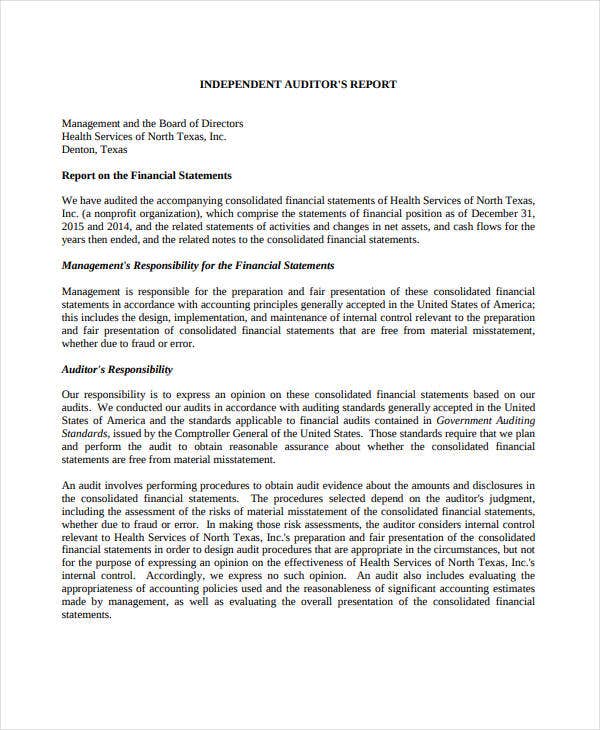An auditor’s report is an important document that provides an independent opinion on an organization’s financial statements and other financial information. It is used by the organization’s stakeholders, such as creditors, investors and regulatory bodies, to assess the accuracy and completeness of a company’s financial statements. It is an invaluable tool for investors and other stakeholders to make informed decisions regarding the financial health of a company. In this article, we will take a closer look at what an auditor’s report is, and how it can help stakeholders make informed decisions.
Understanding the Different Types of Auditor’s Reports

If you’re looking to get an understanding of the different types of auditor’s reports, you’ve come to the right place! An auditor’s report is an opinion issued by an independent auditor, usually a certified public accountant (CPA), regarding the accuracy of a company’s financial statements. There are three main types of auditor’s reports: clean, qualified, and adverse. A clean opinion is the best case scenario and means that the auditor has found the financial statements to be free of any material misstatements. A qualified opinion is given when the auditor has identified a limitation in the scope of the audit, or found misstatements in the financial statements. An adverse opinion is the worst case scenario, and is issued when the auditor believes that the financial statements do not fairly reflect the company’s financial condition. Knowing the types of an auditor’s report can help you understand your financial situation and make more informed decisions.
Exploring the Components of an Auditor’s Report

:An auditor’s report is a crucial part of any business’s financial health. It is a formal document that provides an independent, unbiased opinion on a company’s financial statements and gives assurance to stakeholders that the financial statements are free from material misstatement and give a true and fair view of the company’s financial position. Exploring the components of an auditor’s report is important in order to make sure that the financial statements are accurate and reliable. Generally, the report contains an introduction, a scope statement, management’s responsibility for the financial statements, audit findings, and the auditor’s opinion. The introduction provides an overview of the auditor’s duties and the scope of their work, while the scope statement defines the scope of the audit. Management’s responsibility section focuses on the company’s responsibility for the financial statements and includes an assertion from management that the financial statements are free from material misstatement. The audit findings section summarizes the auditor’s findings and includes details of any material misstatements. Lastly, the auditor’s opinion is a conclusion on the financial statements and provides assurance to stakeholders that the financial statements are free from material misstatement and give a true and fair view of the company’s
How an Auditor’s Report Can be Used to Make Business Decisions

When it comes to making informed business decisions, an auditor’s report can be a great tool to help you understand the financial health of your company. An auditor’s report is a written opinion from an independent, qualified auditor that assesses a company’s financial information and statements. It helps you make sure that the financial statements accurately reflect the company’s financial condition, and can provide an objective opinion about the company’s overall financial health. This can be incredibly valuable when making decisions about investments, mergers and acquisitions, or other financial decisions. Knowing the financial health of your business is key to making informed decisions, and an auditor’s report can provide the necessary information to help you make the best decisions possible.
The Importance of Accurate Auditor’s Reports

An accurate auditor’s report is essential for the financial health of any business. It’s the auditor’s job to assess a company’s financial statements and provide an independent opinion on whether they are free of material misstatement. An auditor’s report can help investors, lenders, and other stakeholders gain confidence in a business’s financial position. The report also reinforces the trust between the business and its stakeholders, as it shows that the company is taking its financial reporting seriously. Accurate auditor’s reports are key to ensuring the financial success of any business.
The Different Regulations and Standards that Govern Auditor’s Reports

Auditor’s reports are used to provide a level of assurance to investors and stakeholders that a company’s financial statements are accurate and reliable. Different regulations and standards govern the content and form of auditor’s reports, depending on the country and type of financial statement being reported on. In the United States, Generally Accepted Auditing Standards (GAAS) are used by auditors to ensure the reliability of an audit report. GAAS consists of three distinct standards: the General Standards, which set out the basic requirements of an audit; the Fieldwork Standards, which set out the procedures required to perform the audit; and the Reporting Standards, which set out the requirements for the auditor’s report. The International Auditing and Assurance Standards Board (IAASB) also develops auditing standards for countries outside of the U.S. which are based on the International Standards on Auditing (ISA). These standards provide a framework for the auditor’s report and ensure that the audit findings are properly communicated to the parties relying on the report. Regardless of which standards are used, all auditor’s reports must provide an opinion on the financial statements and disclose any material misstatements or other irregularities.




